How to Use QuickBooks Churches for Accounting
QuickBooks for churches is an effective solution for church financial management. With the escalating need for transparent tracking of donations and expenses, accurate tax reporting, and ensuring the integrity of financial records, your easy solution is QuickBooks for church accounting.
No matter the size of your congregation, whether you're a small church setting up from scratch or a large church seeking a sturdy accounting system, this in-depth guide to using QuickBooks for Churches is designed with you in mind.
We have also covered how to use SaasAnt Transactions for bulk data management in QuickBooks. It’s a QuickBooks integration app with a 4.7 rating from around 3600 users that will simplify most of your Church's financial data management in QuickBooks. This blog will also walk you through how to import tithes and offerings, expenses, employee records, and equipment vendor records.
Feel free to use the Table of contents below to skip to the section you need.
Contents
Importance of Proper Accounting in Churches
A Brief Overview of QuickBooks Churches Edition
How to Bulk Import Church Financial Data Into QuickBooks? Quick Instructions
Managing Church Expenses through QuickBooks
Importance of Proper Accounting in Churches
Churches play a vital role in their communities, balancing spiritual missions with fiscal responsibilities. Effective accounting is essential for managing unique financial challenges, such as tax-exempt status and diverse income sources like tithes and offerings. QuickBooks for churches offers a solution for maintaining transparency and accuracy in financial dealings, which fosters trust within the congregation. Additionally, proper accounting ensures compliance with complex tax laws, helping churches avoid penalties and maintain their tax-exempt status. By utilizing efficient financial management tools, churches can budget responsibly and align their financial strategies with their mission. Ultimately, proper accounting is crucial for sustainability, allowing churches to focus on their spiritual objectives while confidently managing their worldly affairs.
A Brief Overview of QuickBooks Churches Edition
Churches require efficient financial management, but their unique structures can challenge standard accounting software. QuickBooks for churches has become a favored solution due to its user-friendly design, flexibility, and robust functionality. It effectively handles diverse income streams like tithes, offerings, and donations. Choosing the right QuickBooks version depends on your church's specific needs, congregation size, and accounting complexity. Regardless of the version, QuickBooks offers a reliable and tailored solution to simplify your church's financial management, ensuring accuracy and efficiency.
Getting Started with QuickBooks
Before making any decisions, you'll want to clearly understand what QuickBooks Churches Edition can offer and how much it costs. QuickBooks offers a variety of versions, each tailored to different needs and budgets. Some main versions include QuickBooks Pro, QuickBooks Premier Nonprofit Edition, QuickBooks Enterprise Nonprofit Edition, and QuickBooks Online.
QuickBooks Pro
QuickBooks Pro is the entry-level version of QuickBooks Desktop. It offers essential features such as invoice generation, expense tracking, and basic financial reporting, making it suitable for small churches with more straightforward accounting needs.
QuickBooks Premier Nonprofit Edition
QuickBooks Premier Nonprofit Edition presents a solid option for medium-sized churches. It offers all the features of Pro and includes donation tracking and non-profit reporting. Moreover, it allows customization of its chart of accounts to suit the specific needs of churches.
QuickBooks Enterprise Nonprofit Edition
We recommend the QuickBooks Enterprise Nonprofit Edition for larger churches with complex accounting needs. This edition offers advanced reporting, user roles and permissions, and increased data capacity, among other features. Due to its ability to handle larger volumes of transactions, it's ideal for big congregations.
QuickBooks Online
QuickBooks Online is a cloud-based solution that offers accessibility and real-time collaboration. It's available in different plans catering to varied needs, with the Plus and Advanced plans being the most suited for churches due to their budgeting and reporting capabilities.
Purchase and Access QuickBooks
QuickBooks Online
Open your preferred web browsers like Google Chrome, Firefox, Safari, or Microsoft Edge.
Visit the QuickBooks Online Website.
Click the "Sign In" button at the web page's top-right corner.
Enter your user ID and password to log in.
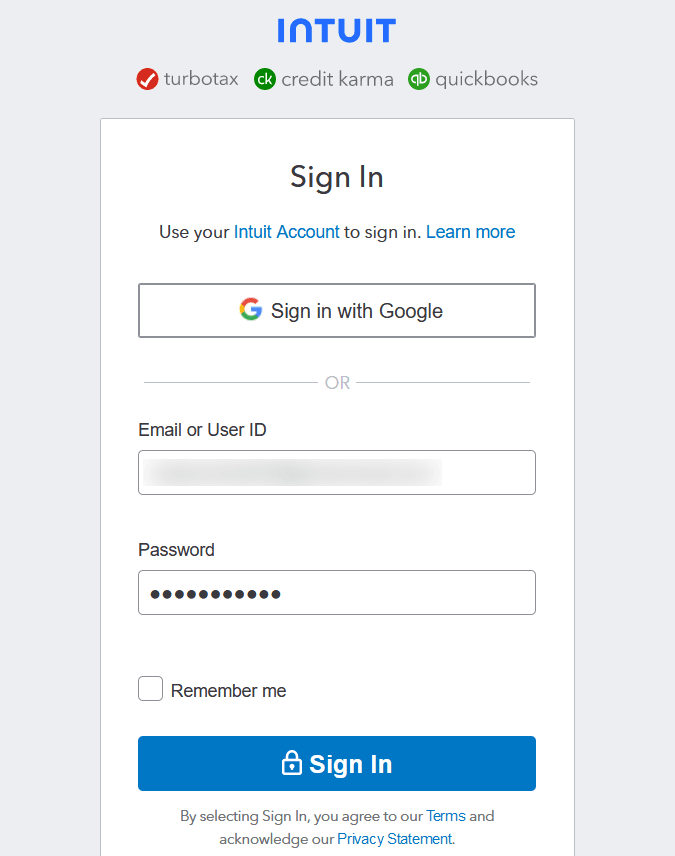
After logging in, QuickBooks Online will take you to the main dashboard.
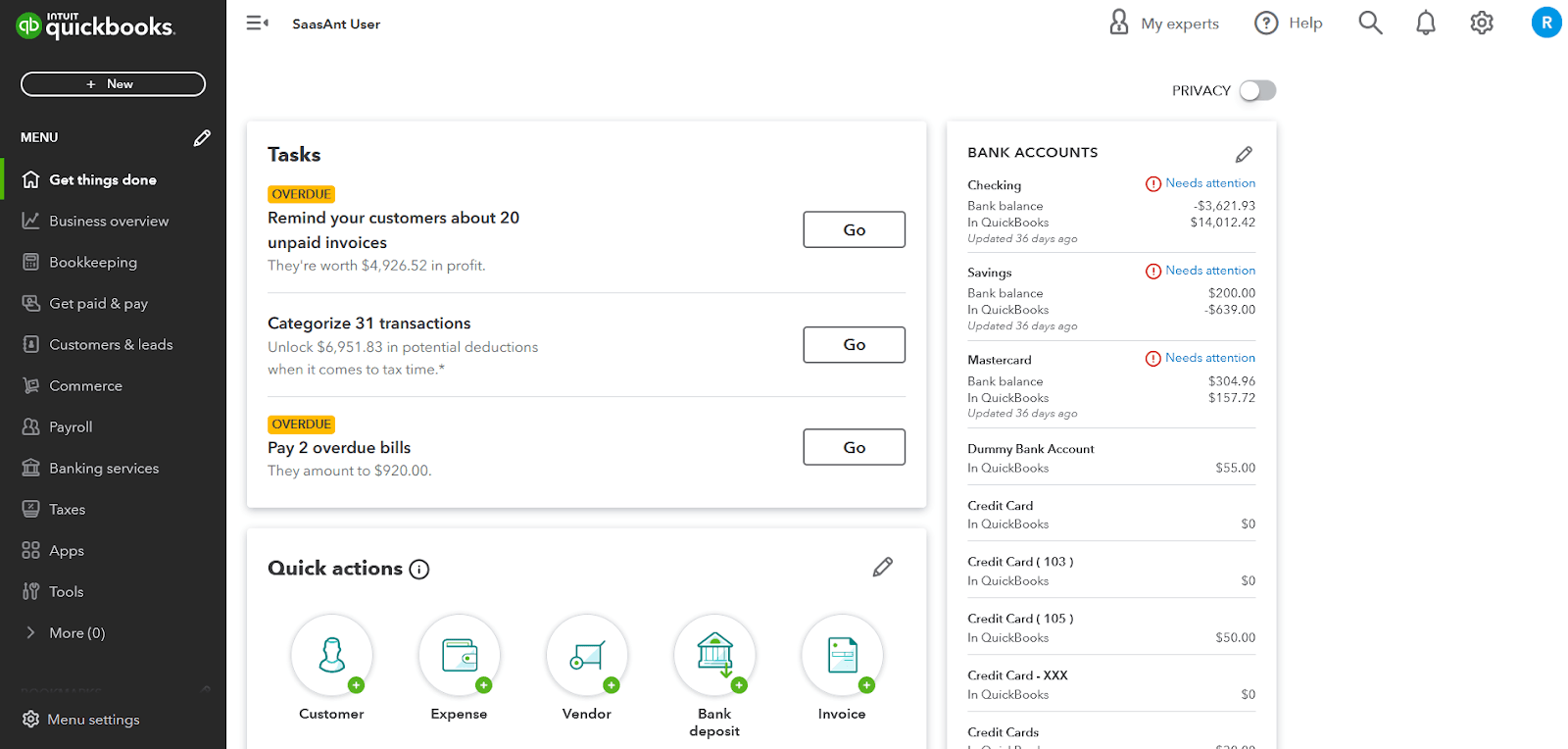
From here, you can access all the features and functions of QuickBooks Online, such as income, expenses, banking, sales, reports, taxes, accounting, and more.
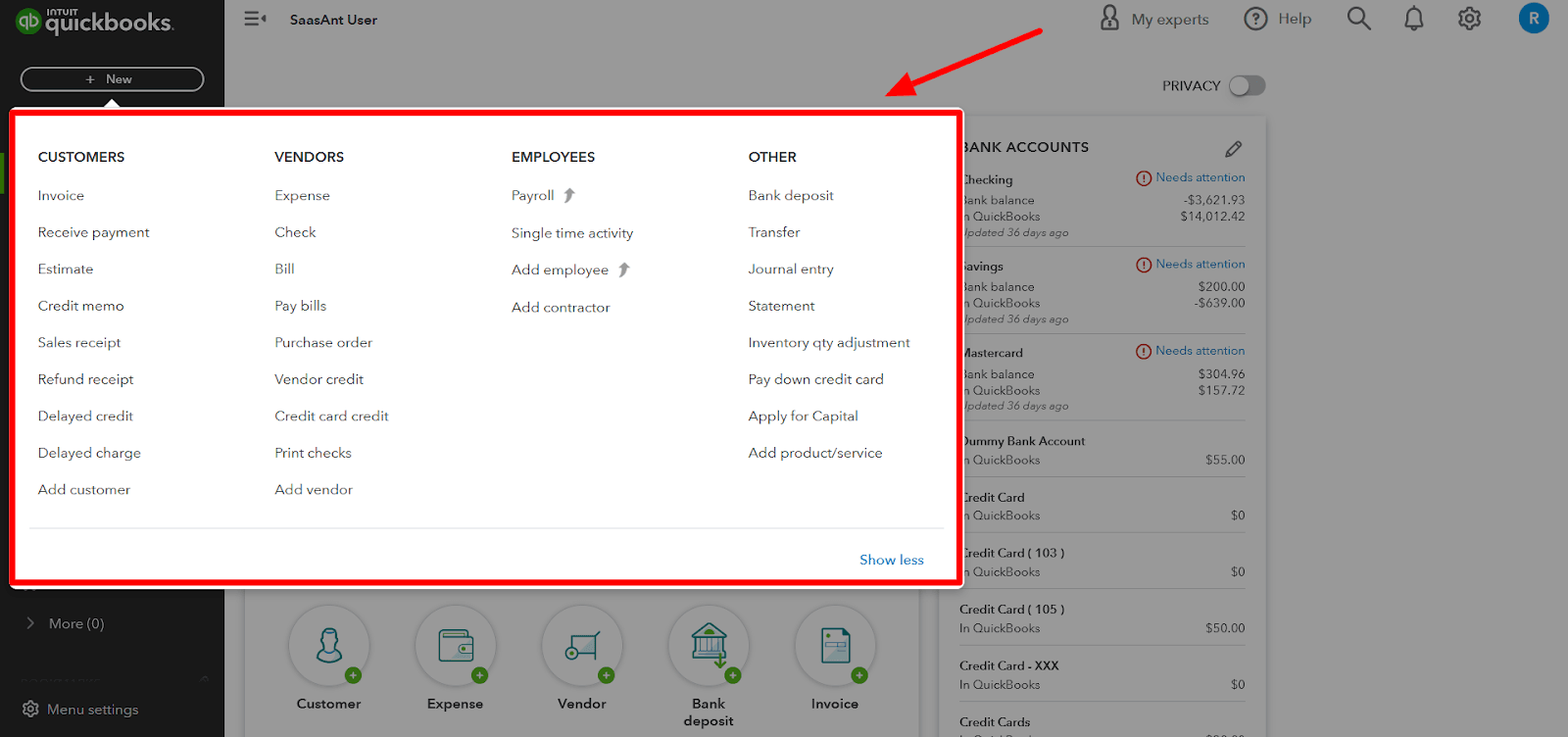
QuickBooks Desktop
Visit the official QuickBooks website, navigate to the "Products" dropdown menu at the top of the page, and select 'QuickBooks Desktop.'
Choose the version of QuickBooks Desktop that suits your needs (Pro, Premier, or Enterprise).
Click ‘Buy Now’ and follow the prompts to complete your purchase.
After you've completed your purchase, you should receive an email from Intuit containing a download link for the QuickBooks Desktop software.
Click on the download link and follow the prompts to download the installation file to your computer.
Once the download is complete, locate the installation file (usually in your computer's ‘Downloads’ folder), and double-click it to start the installation process.
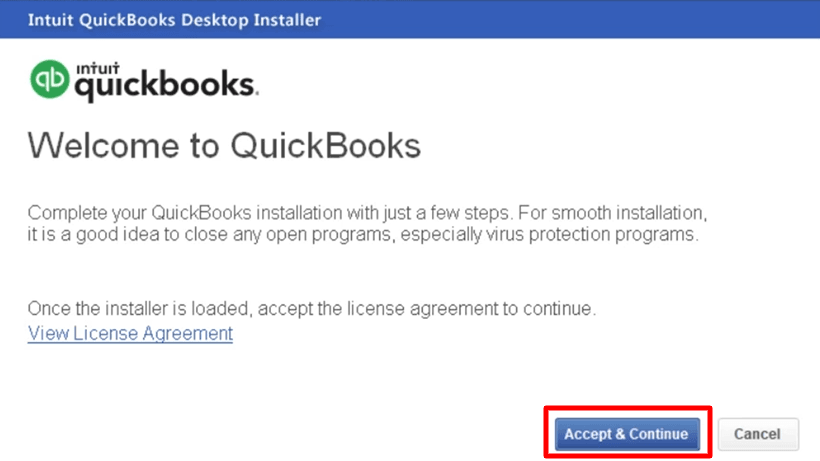
It will ask you to enter the product and license numbers during the process. You can find these numbers in the purchase confirmation email from Intuit.
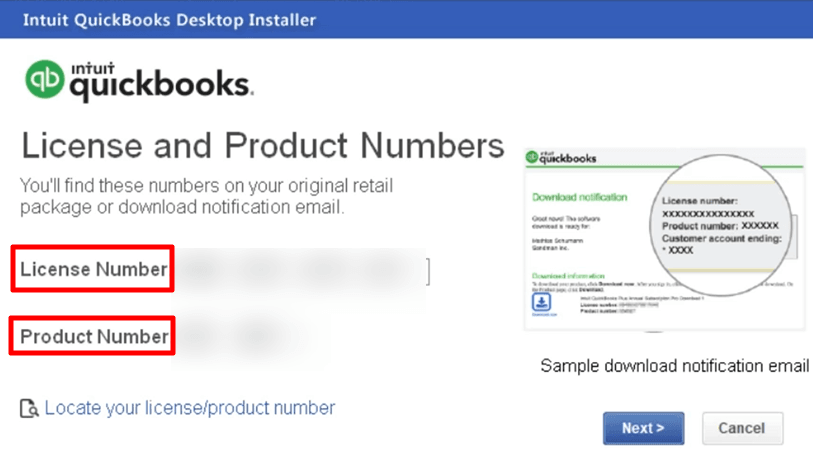
You'll be guided through the initial setup process when you open the program.
Here, you'll enter details about your business, set up your chart of accounts, and much more.
After the initial setup, you can access QuickBooks Desktop anytime by double-clicking the QuickBooks icon on your desktop.

Chart of Accounts and Categories
Effective accounting for churches begins with a well-structured QuickBooks for churches chart of accounts. This tailored chart addresses unique financial needs by incorporating appropriate income and expense categories. Utilizing classes and tags further enhances the accuracy and usefulness of financial reports. By focusing on these elements, churches can achieve clearer insights into their financial health, ensuring better management of resources and compliance with regulations. Let’s explore how each aspect contributes to improved financial reporting for churches.
Creating a Church-Specific Chart of Accounts
The chart of accounts is the backbone of your financial system, a list of all accounts used in your organization's general ledger. For churches, it's essential to customize this chart to reflect the specific income streams, liabilities, assets, and expenses you deal with.
For instance, income accounts include offerings, tithes, special gifts, or income from church-run activities. Depending on your church's unique functions, you might divide expenses into accounts for administrative costs, missions, worship, pastoral care, and other categories.
Accessing Chart of Accounts in QuickBooks Online:
Navigate to the ‘Chart of Accounts’ section by clicking the ‘Gear’ icon and selecting ‘Chart of Accounts’ under the ‘Your Company’ section.
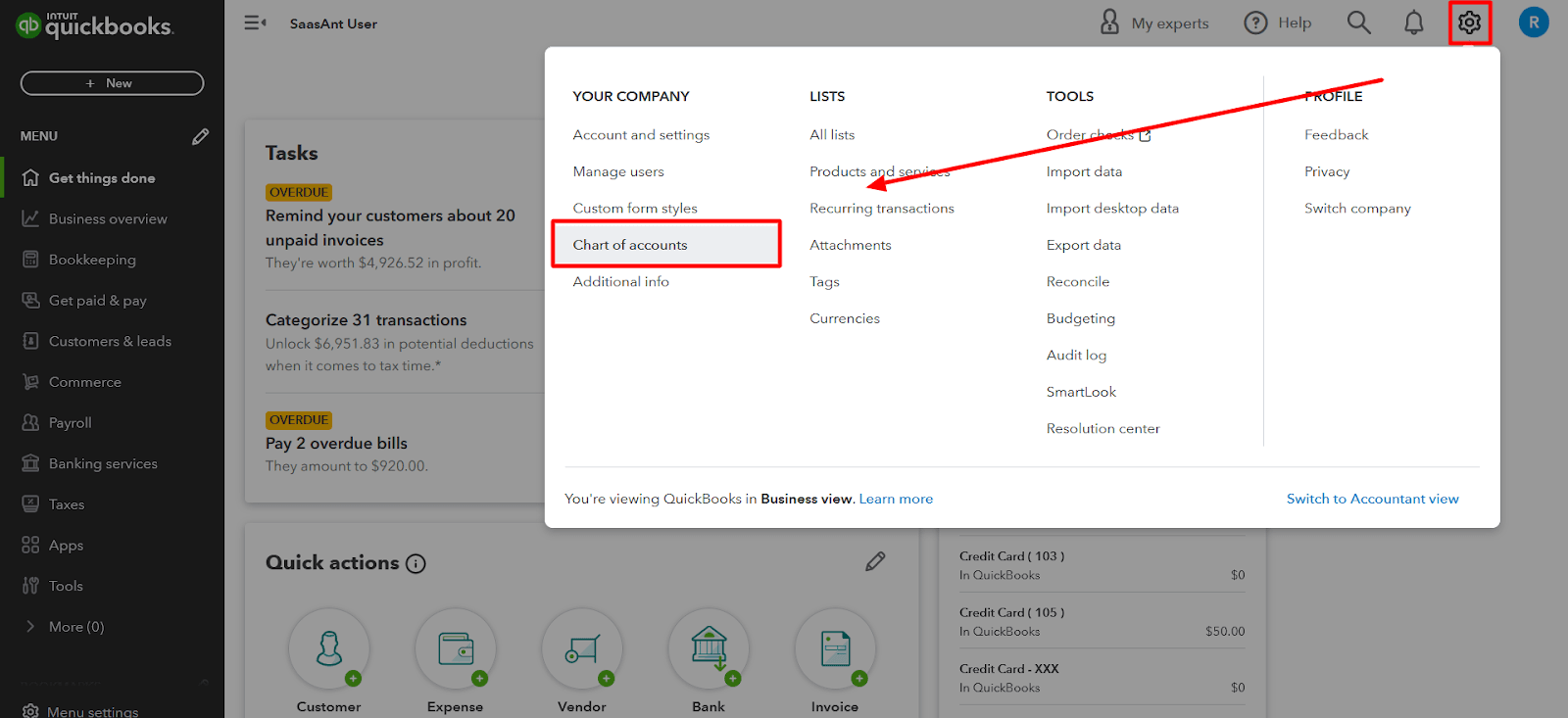
Click the 'New’ button, usually located on the right-hand side of the screen.

Choose the account type as ‘Income Account’ or ‘Expense Account’ depending on the transaction made.
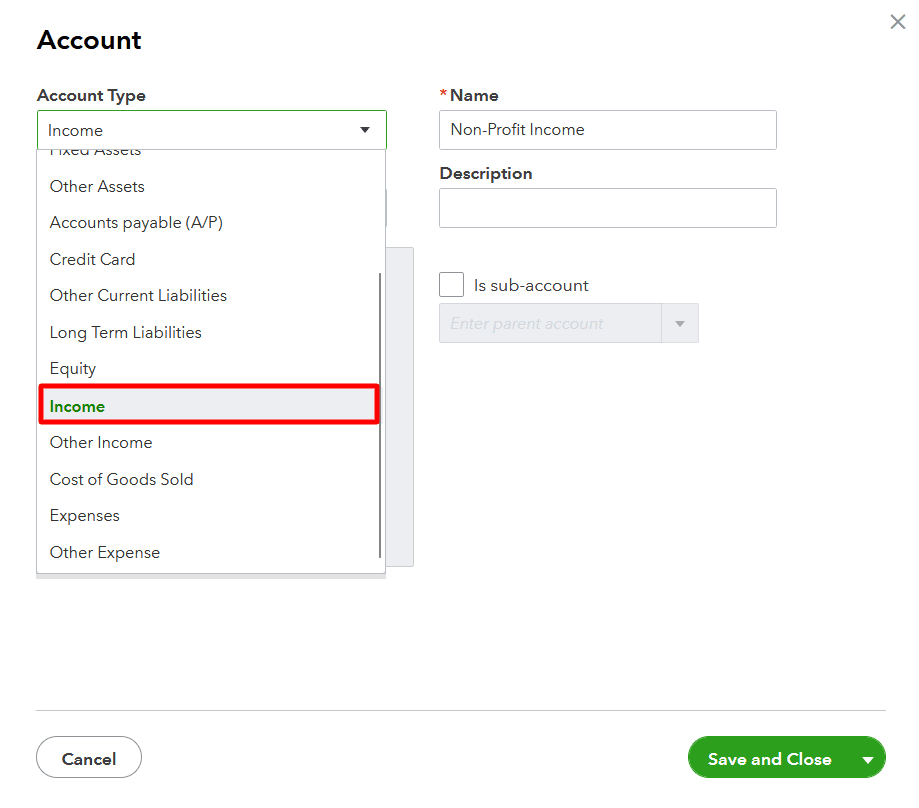
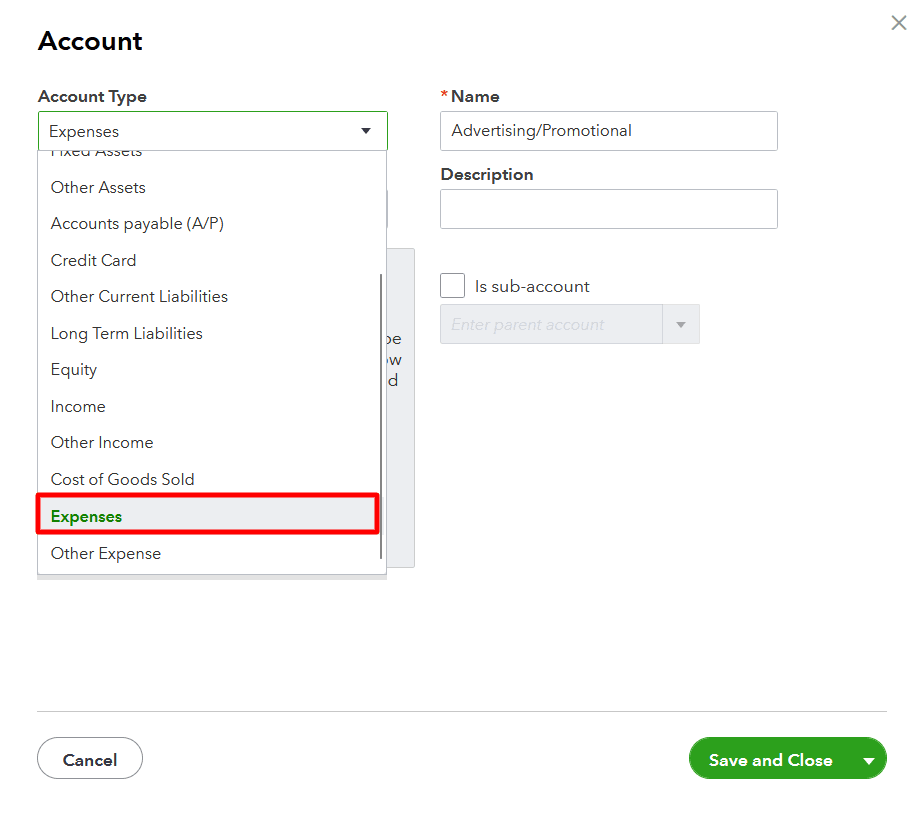
Choose the detail type, then add the name, description, and other relevant details.
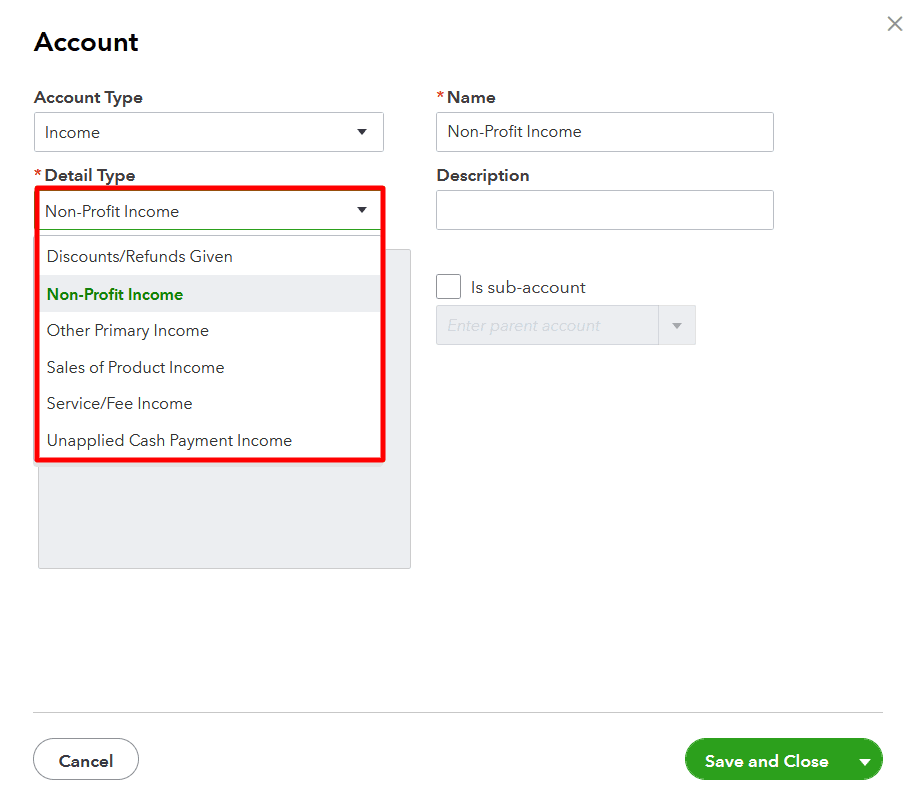
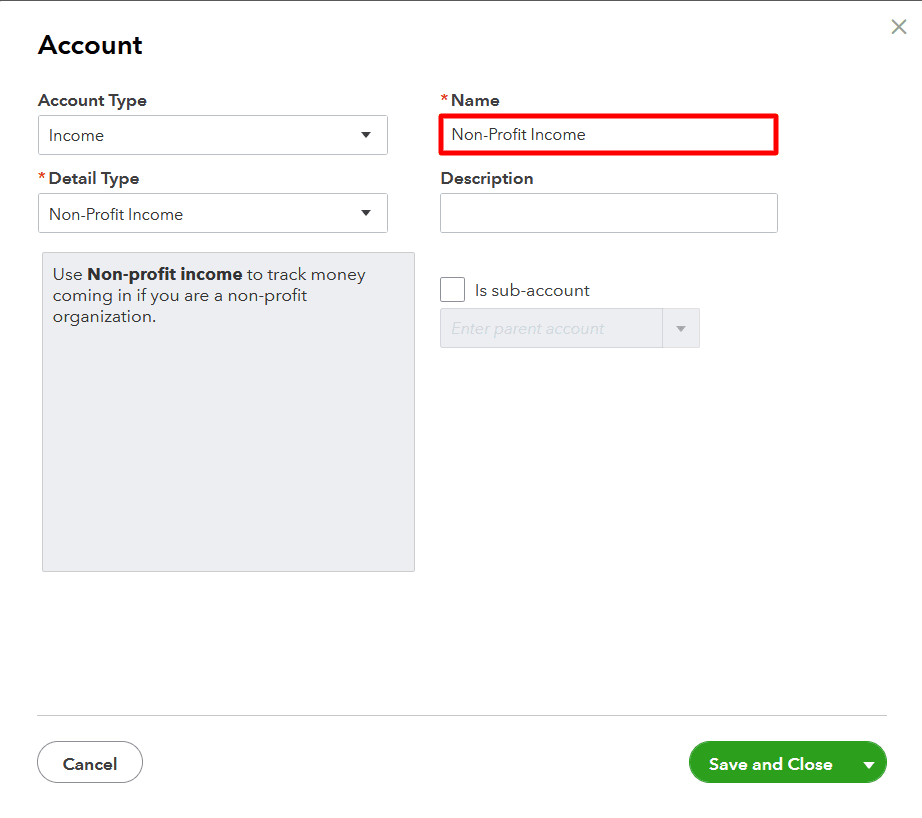
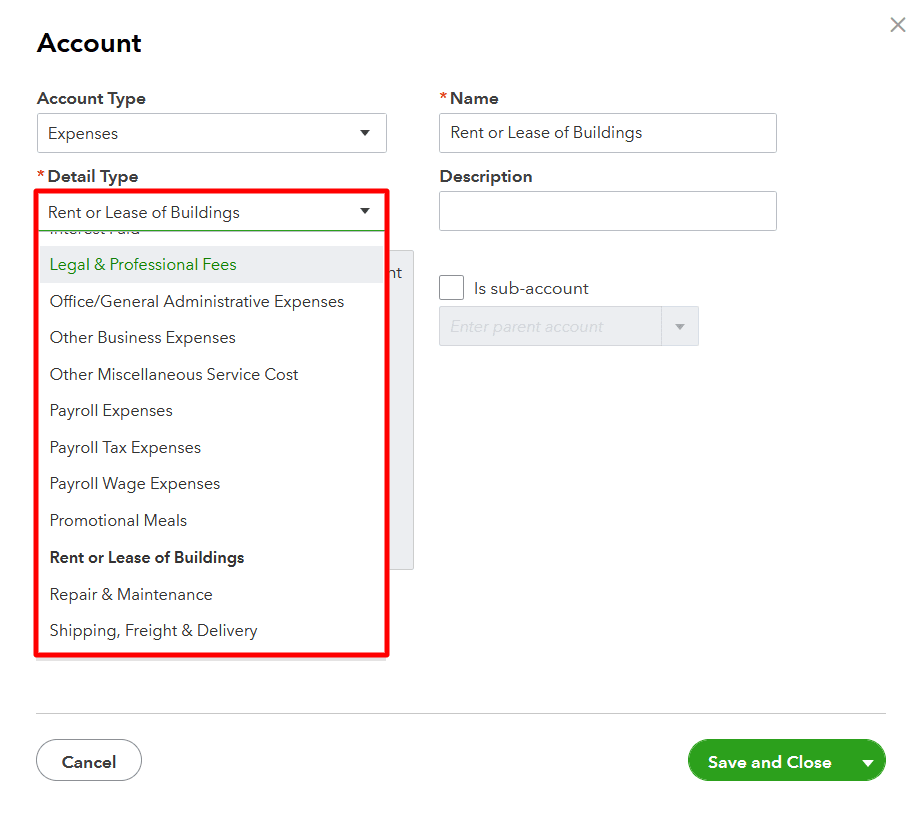
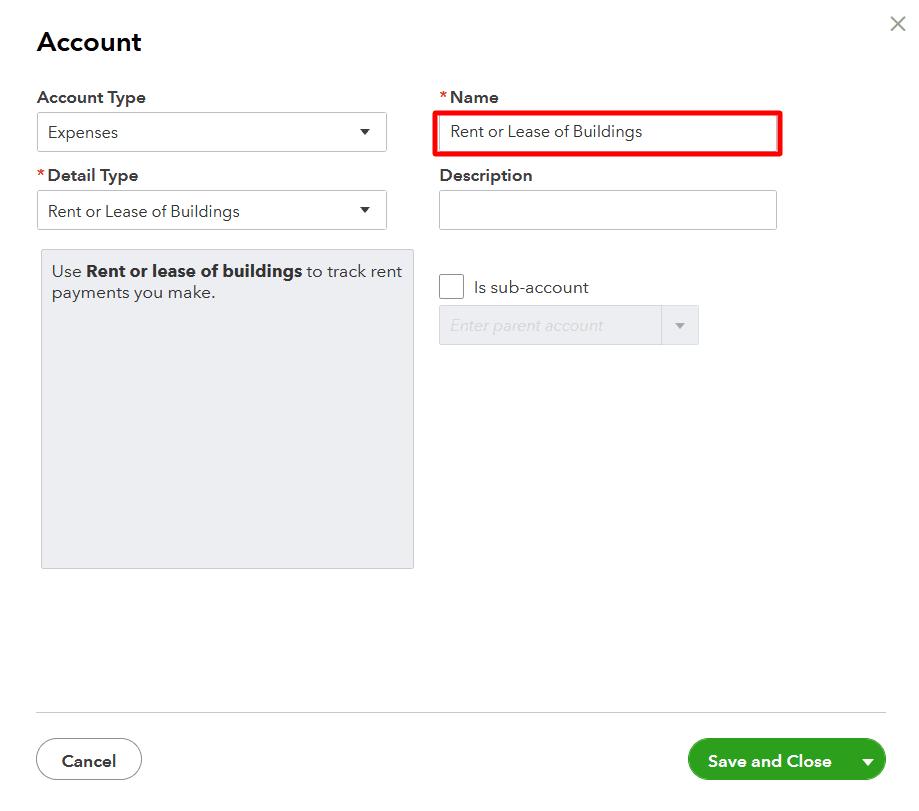
Accessing Chart of Accounts in QuickBooks Desktop
Click the ‘Lists’ menu from the menu bar and select ‘Chart of Accounts’ from the dropdown.

In the Chart of Accounts window, click ‘Account’ at the bottom of the screen and select ‘New.’
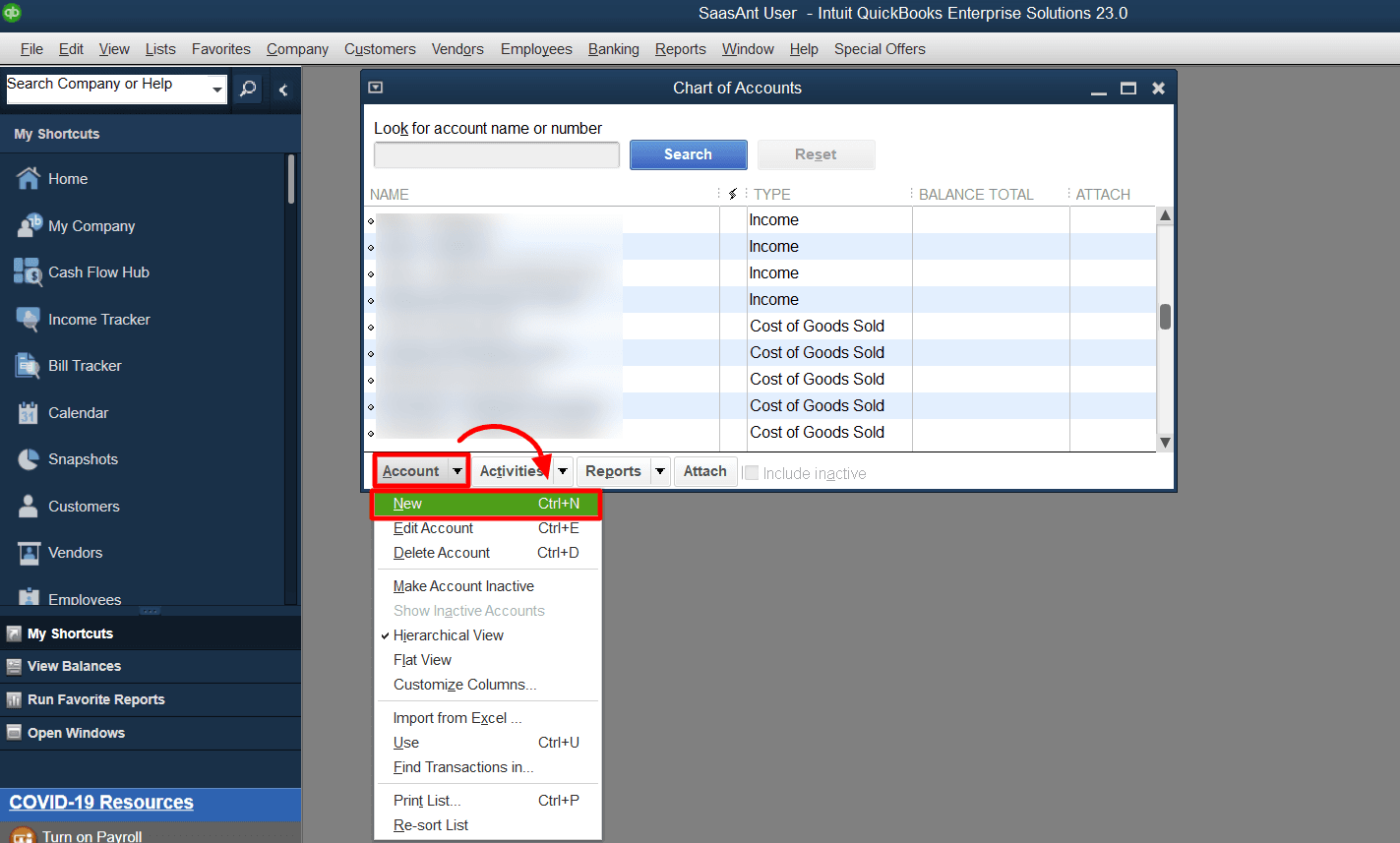
You can choose the account type by selecting ‘Income’ or Expense’ and then click ‘Continue.’
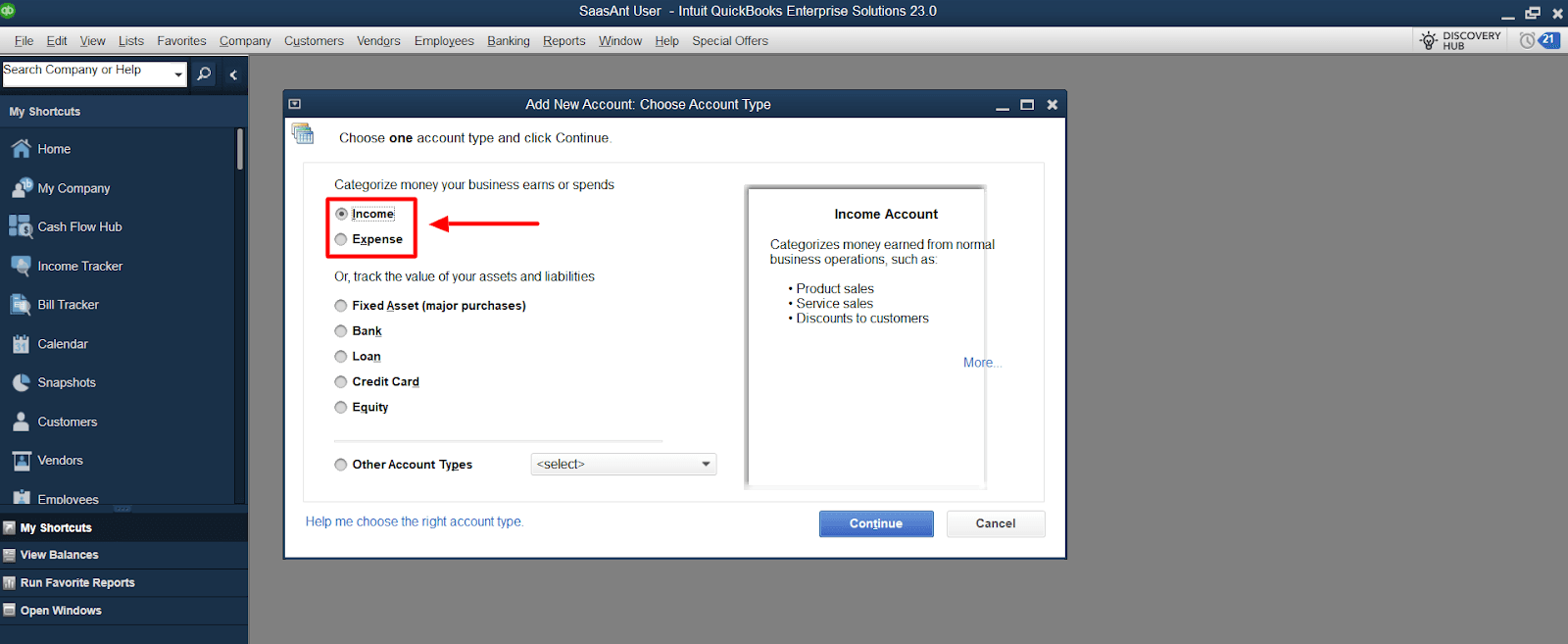
Once you’ve selected the account type, you’ll have to name the account. You can add a new name or select an existing account name by clicking the ‘Select from Examples’ button.
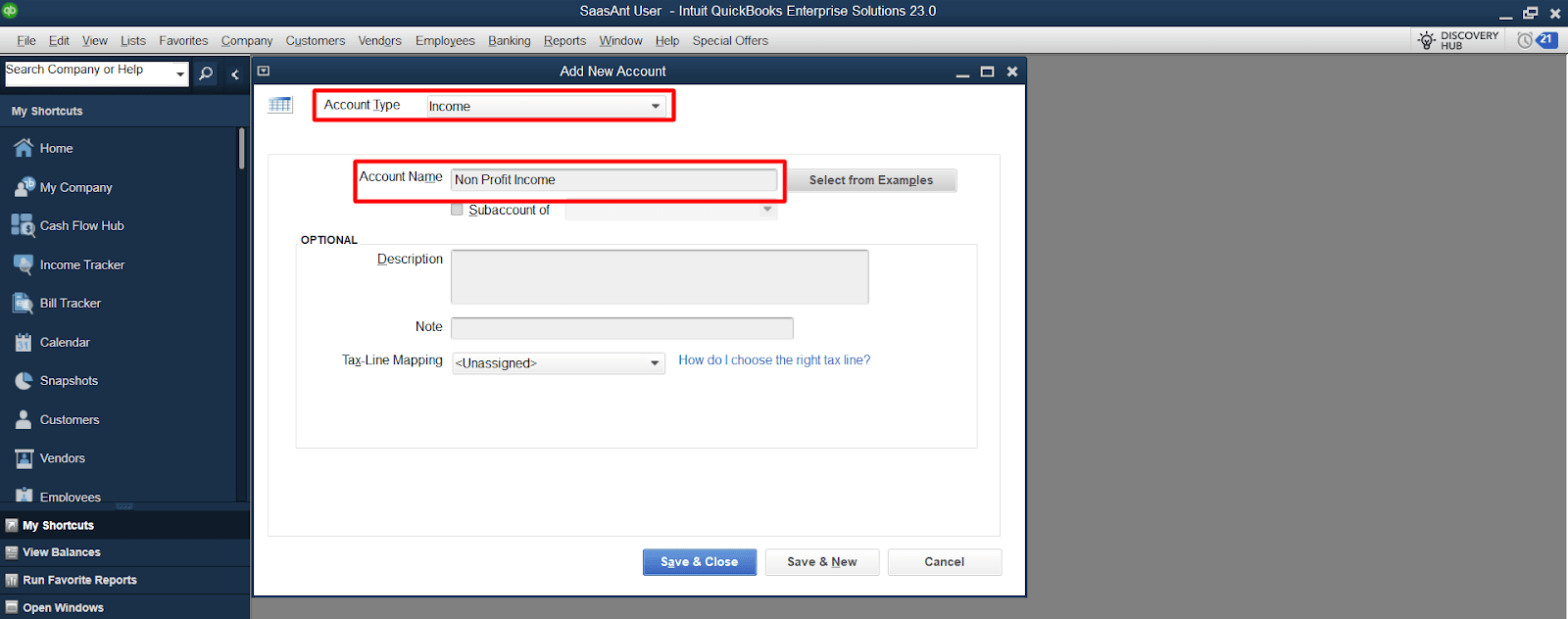
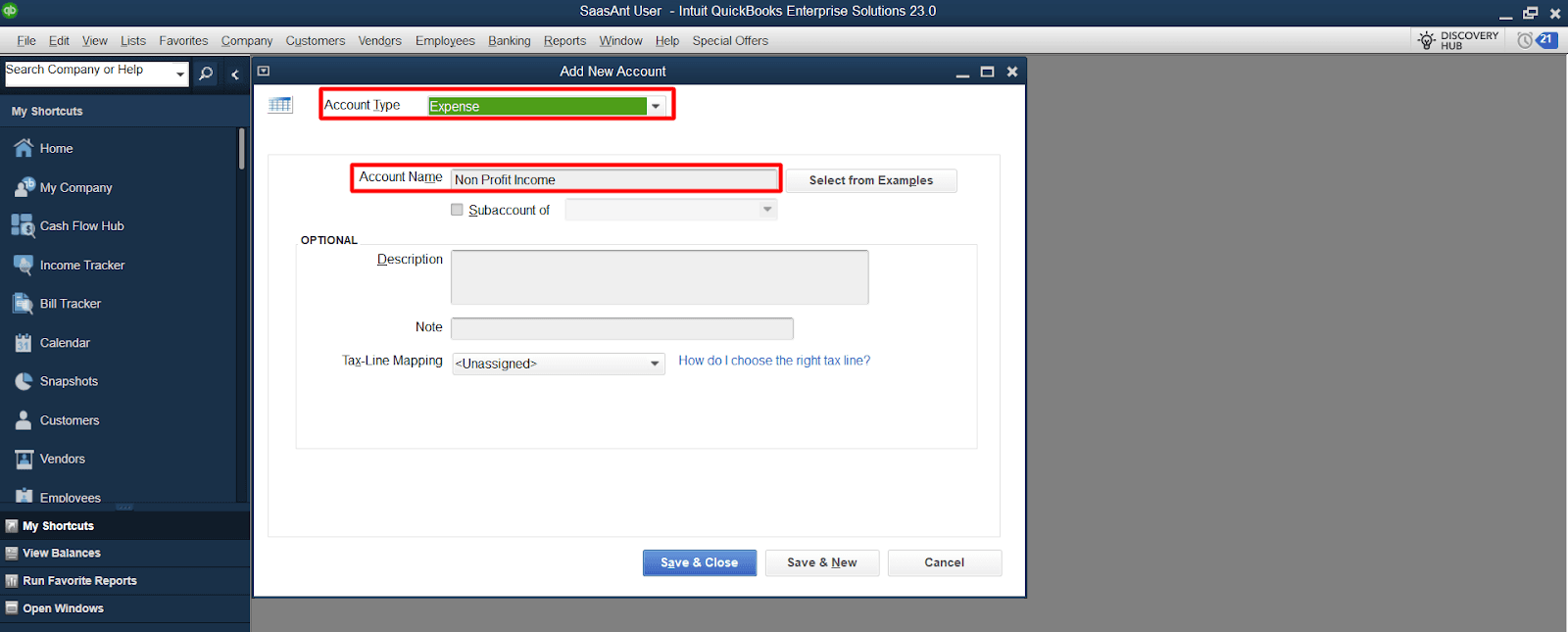
Utilizing Classes and Tags for Detailed Tracking
QuickBooks offers two powerful features for more detailed tracking 'Classes and Tags.' These can track funds across different categories and provide deeper insights into your financial data.
Classes
You can use classes to track specific programs, events, or locations. For instance, if your church operates in multiple locations, you could create a separate class for each site. This would allow you to track income and expenses per location, providing insights into the financial health of each one.
Tags
Tags are a newer feature in QuickBooks and offer another layer of categorization. Tags are flexible and can be used to track whatever you need. For example, if you want to track a specific fundraising campaign, you can create a tag and apply it to every related transaction.
To effectively utilize these features, you should develop a consistent system for when and how to use them. A well-planned structure for your chart of accounts, combined with thoughtful use of categories, classes, and tags, can make your financial reporting much more powerful and insightful.
Organizing Income and Expense Categories
For effective tracking and reporting, accurate categorization is essential. Break down income into categories that reflect the sources of funds, such as general donations, fundraising events, rental income, and other sources.
Conversely, you should categorize expenses by the usage of the funds. Typical expense categories for churches might include payroll, utilities, missions, office supplies, and more. When you categorize every transaction, it allows you to generate reports that offer valuable insights into your church's finances.
Remember that when you set up your income and expense categories, the goal is to balance detail and simplicity. You want to establish enough categories to provide informative insights but not so many that your bookkeeping becomes excessively complex.
Recording Church Income
In a church setting, income can come from multiple sources, including offerings and tithes, donations and gifts, fundraisers, special events, and more.
Offerings and Tithes
Note: When using QuickBooks to record offerings and tithes, you can establish an income account named 'Tithes and Offerings.' You can then register individual contributions as deposits into this account.
Suppose your church uses offering envelopes or another method to track individual member contributions for tax purposes. In that case, you can use the 'Sales Receipt' function in QuickBooks to record each member's contribution separately. This method allows you to provide donors with an annual statement of their contributions for tax purposes.
Donations and Gifts
Many churches receive donations and gifts outside of regular offerings and tithes. These might come from members, the local community, or anonymous donors. Depending on their nature and frequency, you might track these in a separate income account named 'Donations' or 'Gifts.'
Remember to record any specific details related to the donation, such as the donor's name (if not anonymous), the date, and any usage restrictions for the funds.
Fundraisers and Special Events
Fundraisers and special events can also generate significant income for churches. These can range from bake sales and car washes to concerts and galas. Since the income from these activities typically links to a specific event, creating a separate income account for each event or type of fundraiser is beneficial.
For example, you might have an income account named ‘Bake Sale’ for income from your annual bake sale. If you run multiple fundraisers throughout the year, you could also use classes or tags to track all fundraiser-related income collectively.
Other Income Sources
Churches might have additional income sources like rent from church-owned property, selling resources or merchandise, grants, investment income, and more. Each of these should have its dedicated income account. For instance, you could establish an income account named 'Rental Income' for income generated from property rentals.
Remember, accurately recording income in QuickBooks is about more than just keeping your books straight. It's also about providing the transparency and accountability that donors and regulatory bodies expect from your church. With accurate income tracking, you'll have a clear picture of where your funds come from, which can also be invaluable in planning and budgeting.
How to Bulk Import Church Financial Data Into QuickBooks? Quick Instructions
Find SaasAnt Transactions in the QuickBooks App Store and connect it to your QuickBooks account. SaasAnt Transactions is a certified, secure app designed to keep your data safe and well-managed. You can get started right away with a 30-day free trial.
Note: You can choose to import Bank Deposits for Offerings and Tithes, Sales Receipts for donors, Bills and Purchase Orders for equipment vendors, Accounts,
SaasAnt Transactions Dashboard -> New Import -> Select the appropriate entity.
Browse to choose your file or drag and drop it. Supported formats include XLS, XLSX, CSV, and IIF. There’s an inbuilt feature to convert PDF to Excel before uploading.
Map the fields in QuickBooks to those in the imported file, selecting the appropriate sheet if necessary.
Click Upload to import your file into QuickBooks Online, then click Show Results after uploading.
Verify uploaded data by clicking the reference number. You can also roll back the imported data if needed.
Read how to import transactions into QuickBooks for a detailed guide with screenshots.
You can also bulk export, edit, and delete your Church financial data and backup using email or FTP/SFTP for data security using SaasAnt Transactions.
Managing Church Expenses through QuickBooks
QuickBooks for churches is a comprehensive financial software suite that is particularly beneficial for religious organizations due to its flexibility and adaptability. Managing church expenses effectively and efficiently becomes significantly easier when leveraging the power of QuickBooks. Here's how churches can utilize QuickBooks for managing regular operating expenses, payroll, program expenses, and equipment purchases.
Regular Operating Expenses
Track Expenses
QuickBooks lets you input and track all regular operating expenses, such as utilities, rent, and maintenance. You can easily monitor and manage your church's ongoing costs by entering these as recurring expenses.
For instance, if your church pays a monthly utility bill of $200, you can enter this as a recurring expense in QuickBooks. The software will then automatically track this expense monthly, reducing manual entry and the chance of mistakes.
Budgeting
You can use QuickBooks' budgeting feature to create a detailed budget for each operating expense. By comparing actual spending to the budgeted amounts, you can identify areas where the church might be overspending.
Suppose you've budgeted $2,400 for utilities for the year. QuickBooks allows you to input this amount and track actual spending against it, enabling you to monitor potential overspending.
Expense Reports
QuickBooks enables the generation of detailed expense reports, providing a clear view of the church's fund allocations. You can create an expense report in QuickBooks that details all costs incurred at the end of each month. This delivers a transparent overview of where the funds are being allocated.
Payroll and Employee Salaries
Payroll Processing
With the QuickBooks Payroll feature, churches can efficiently process payroll, calculate taxes, and issue payslips. It also offers the capability to handle benefits and deductions. With QuickBooks, you'll have to input the employee details and the hours worked; the software does the rest. It calculates the wages, taxes, and benefits or deductions, streamlining the payroll process.
Salary Structure
QuickBooks allows you to set up a detailed salary structure, including different rates for different roles and automatic calculations for overtime or bonuses. Suppose you have a pastor earning $60,000 yearly and a secretary making $35,000. QuickBooks allows you to set these salaries and automatically calculate monthly or weekly payments, saving time and reducing errors.
Employee Records
QuickBooks can store comprehensive employee records, allowing easy tracking of wages, benefits, tax information, and more. For instance, the pastor's record would include their salary, tax withholding, health insurance or retirement deductions, and other relevant details.
Program and Ministry Expenses
Custom Categorization
You can create custom expense categories in QuickBooks for different programs and ministries. This feature allows you to track the expenses of each program or ministry separately. For instance, if your church runs a food bank program, you can set up a custom expense category named 'Food Bank Program' in QuickBooks to track all related expenses.
Budget Tracking
For each program or ministry, you can set up a separate budget in QuickBooks and compare actual spending to these budgets. If the ‘Food Bank Program’ budget is $10,000 for the year, you can input this amount in QuickBooks and track actual spending against it.
Reports
The reporting feature in QuickBooks enables the creation of detailed financial reports for each program or ministry. These reports can be invaluable for assessing different programs' financial success and impact. For instance, you can generate financial data for the 'Food Bank Program' at any time to review expenditures and track the allocation of funds.
Equipment and Asset Purchases
Fixed Asset Tracking
QuickBooks can track the purchase and depreciation of fixed assets over time. This allows churches to keep an accurate record of their assets and their current value. For example, if the church purchases a new sound system for $5,000, expected to last five years, QuickBooks can track this as a fixed asset and calculate the annual depreciation of $1,000.
Expense Categorization
You can separately categorize equipment purchases for easy tracking. This categorization simplifies assessing how much the church spends on equipment. For example, you can classify the purchase of a sound system under 'Equipment Purchases,' facilitating the tracking of all similar expenses.
Vendor Management
QuickBooks also helps manage vendors from whom the church purchases equipment. It tracks vendor contact information, payment terms, and purchase histories. Suppose you bought the sound system from 'Sound Equipment Co.' You can store their contact information, the cost of the sound system, and payment terms in QuickBooks for future reference.
By using QuickBooks effectively, churches can streamline their financial management processes. Whether tracking regular operating expenses, managing payroll, handling program and ministry costs, or overseeing equipment and asset purchases, QuickBooks provides an efficient and practical solution. By utilizing QuickBooks, churches can ensure better financial accountability, enabling them to focus more on their core mission.
Bank Reconciliation and Financial Reporting through QuickBooks
QuickBooks is a comprehensive financial management tool and an efficient platform for bank reconciliation and financial reporting. Let's delve into how to use QuickBooks for Churches to reconcile bank and credit card accounts, generate essential financial reports, and analyze financial data for informed decision-making.
Reconciling Bank and Credit Card Accounts
Bank reconciliation is an essential accounting process that compares internal financial records against monthly statements from external sources like banks or credit card companies. QuickBooks simplifies bank reconciliation by allowing you to connect your bank and credit card accounts to the software. It then automatically downloads transactions and matches them with the transactions recorded in QuickBooks.
For instance, you have a transaction for a $200 utility bill payment on your bank statement. QuickBooks will match this with the corresponding entry in your software. The software will highlight discrepancies, such as a transaction recorded in QuickBooks but not on the bank statement (or vice versa), allowing for timely correction.
For a more detailed read with screenshots, check out our guide on reconciling credit cards in QuickBooks Online and Desktop.
Generating Financial Reports (P&L and Balance Sheet)
QuickBooks can generate a wide range of financial reports that provide valuable insights into the financial status of your organization.
Profit & Loss Statement
This report shows your income, expenses, and profitability over a specific period. QuickBooks allows you to generate this report with just a few clicks, ensuring you always have up-to-date information on your financial performance.
Balance Sheet
This report provides a snapshot of your organization's financial position at a specific time, showing assets, liabilities, and equity. QuickBooks simplifies the creation of balance sheets by automatically pulling in data from your financial records.
If you require a quarterly board meeting financial report, you can use QuickBooks instead of manually compiling this data. QuickBooks can generate a Profit & Loss Statement and a Balance Sheet swiftly and efficiently. These reports offer a comprehensive view of the church's financial health.
Analyzing Financial Data for Informed Decision-Making
QuickBooks provides various features for analyzing financial data, aiding in informed decision-making.
Financial Analysis Features
QuickBooks includes features for budgeting, forecasting, and trend analysis. These can help you understand your financial patterns, anticipate future needs, and make strategic decisions.
For instance, if your church is considering expanding its outreach programs. By using QuickBooks' budgeting and forecasting feature, you can predict the financial impact of this expansion. Trend analysis can also help you understand how your income and expenses have changed, providing valuable context for this decision.
Integrating QuickBooks with Church Management Systems (Chms)
Integrating QuickBooks with a Church Management System (ChMS) can streamline financial management and improve church operations. Let's explore the benefits of this integration, the ways it can simplify data transfer and reduce errors, and the compatible ChMS options that integrate smoothly with QuickBooks.
Benefits of Chms and QuickBooks Integration
The integration of QuickBooks with a ChMS offers several significant benefits:
Data Centralization
Integrating the two systems brings your financial and membership data into one centralized location.
Time Efficiency
Automation of data transfer between the two systems saves administrative time and effort.
Financial Accuracy
The integration reduces the chance of data entry errors, leading to more accurate financial reporting. For instance, your church receives several weekly donations through various channels. Instead of manually entering these donations into your ChMS and QuickBooks, an integrated system can automatically update both platforms simultaneously. This ensures accuracy, saves time, and allows for real-time financial updates.
Streamlining Data Transfer and Reducing Errors
The primary way that integration streamlines operations is by automating data transfer and reducing the potential for errors.
Automated Data Transfer
When integrated, a financial transaction entered into the ChMS, such as a donation, is automatically transferred to QuickBooks. This integration eliminates the need for duplicate data entry.
Error Mitigation
Automated data transfer also reduces the potential for human error, such as transposition errors or missed entries, leading to more accurate financial records. Consider a church event where several ticket sales transactions occur. In a non-integrated system, these sales must be manually entered into the ChMS and QuickBooks, increasing the potential for errors. With integration, the data is entered once and automatically synced to both systems, reducing the risk of errors and improving efficiency.
Exploring Compatible ChMS Options
Several ChMS options integrate seamlessly with QuickBooks:
Breeze ChMS
This user-friendly, powerful ChMS integrates smoothly with QuickBooks, allowing for automatic updates of contribution records and easy tracking of donations.
ChurchTrac
ChurchTrac is a robust ChMS that syncs with QuickBooks, simplifying the management of contributions, accounting, and budgeting tasks.
Aplos
Aplos is a ChMS explicitly designed for financial management, making it a great companion to QuickBooks. It enables comprehensive tracking of donations, funds, and expenses.
For instance, if you use Breeze ChMS for a fundraising event, you would log the funds raised into Breeze. Thanks to the integration with QuickBooks, the same data would automatically appear in your QuickBooks system. This setup eliminates the need for duplicate entries, which saves time and ensures data accuracy.
Benefits of Using QuickBooks for Church Accounting
QuickBooks, a versatile accounting software, has many features beneficial for church accounting. Its user-friendly interface and comprehensive functionalities can lead to time and cost savings, accurate financial tracking and reporting, enhanced budgeting and planning, and streamlined compliance with non-profit regulations.
Time and Cost Savings: QuickBooks can significantly reduce the time spent on bookkeeping tasks, leading to substantial cost savings.
Automated Transactions: QuickBooks allows for automatic recording and tracking of recurring transactions such as rent, utilities, and salaries, eliminating manual entry and freeing up valuable time.
Simplified Payroll: The software simplifies payroll processing, calculating taxes, and issuing payslips, which would otherwise be time-consuming and costly.
Accurate Financial Tracking and Reporting
QuickBooks offers features that ensure the accuracy of financial records and ease of reporting.
Real-time Tracking: QuickBooks enables real-time tracking of income, expenses, assets, and liabilities, ensuring that your financial records are always up-to-date.
Comprehensive Reporting: The software can generate various financial reports, such as profit and loss statements, balance sheets, and cash flow statements, which provide a clear picture of the church's financial health.
Enhanced Budgeting and Planning:
Budgeting and financial planning are vital for churches, and QuickBooks provides tools to facilitate these processes.
Budget Creation and Monitoring: QuickBooks allows for creating detailed budgets for different categories, tracking actual spending against these budgets, and alerting when spending is close to exceeding budgeted amounts.
Financial Forecasting: QuickBooks can analyze past financial data to help with financial forecasting, aiding in informed decision-making for future planning.
Streamlined Compliance with Nonprofit Regulations
QuickBooks also aids in compliance with non-profit regulations, making it easier for churches to meet their legal and financial obligations.
Donor Contribution Tracking: QuickBooks allows for accurate tracking of donor contributions, an essential requirement for maintaining non-profit status.
Tax Compliance: The software can handle tax deductions at the source and generate necessary tax forms, making it easier to comply with tax laws.
Wrap Up
Managing a church's finances is a complex task that requires precision and transparency. QuickBooks for churches offers robust features and a user-friendly interface to meet these needs. It helps manage operating expenses, payroll, and budgets while providing financial reporting for informed decision-making. Integration with Church Management Systems (ChMs) centralizes data and automates processes, reducing errors and saving time. Additionally, QuickBooks aids in maintaining compliance with non-profit regulations. By embracing QuickBooks for churches, organizations can simplify administrative tasks, enhance financial transparency, and focus more on their mission.
FAQs
Does QuickBooks have a program for churches?
QuickBooks is versatile. You can customize it to your Church's financial needs. You can tweak income and expense tracking into Tithes and Offerings, Fundraisers, and Donations tracking. You can also use SaasAnt Transactions to quickly import your financial data into QuickBooks for data accuracy.
What is the best accounting software for a church?
The best accounting software for a church is QuickBooks. It provides user-friendly features for tracking expenses, managing payroll, and generating financial reports. QuickBooks also integrates with Church Management Systems, simplifying data management and ensuring compliance with non-profit regulations, making it an ideal choice for churches.
How much does QuickBooks cost for a nonprofit?
QuickBooks pricing for nonprofits includes: Plus: $49.50/month, Advanced: $235, discounted to $117.50/month. These plans offer essential features tailored for nonprofit organizations, helping manage finances effectively. Prices may vary based on promotions or specific nonprofit discounts.
Can QuickBooks Integrate with a Church Management System (Chms)?
Several ChMS options, such as Breeze ChMS, ChurchTrac, and Aplos, integrate seamlessly with QuickBooks. This allows for automatic updates of financial records in both systems, saving time and improving accuracy.
How Does QuickBooks Help in Budgeting for a Church?
QuickBooks provides features for creating detailed budgets for different categories and monitoring actual spending against these budgets. It sends alerts when spending nears or exceeds budgeted amounts.
Can QuickBooks Be Used for Tracking Church Donations?
Yes, QuickBooks allows churches to track donations accurately, specifying the donor, amount, and purpose. This information can be crucial for donor acknowledgment and tax purposes.